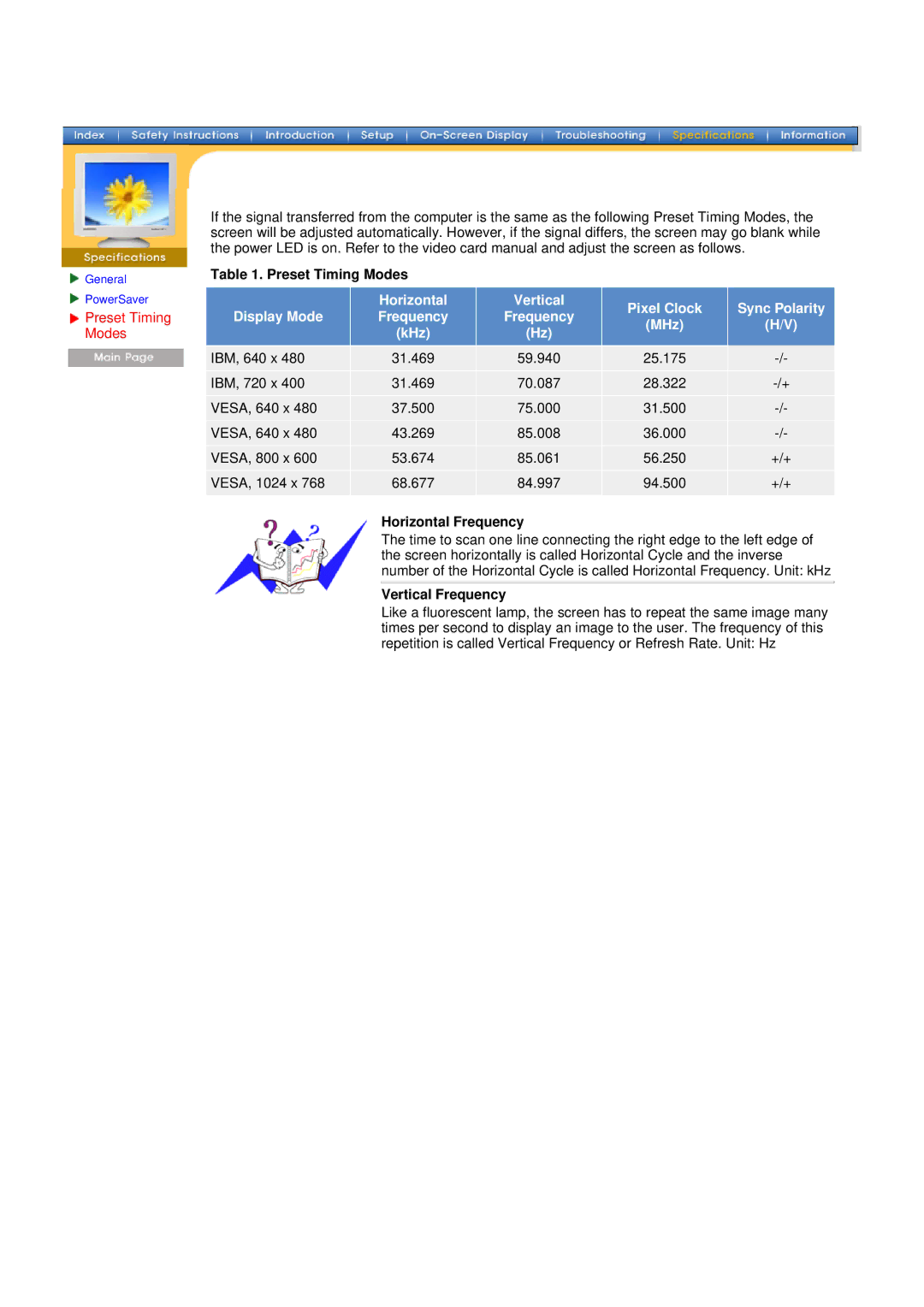
![]() General
General ![]() PowerSaver
PowerSaver
Preset Timing Modes
If the signal transferred from the computer is the same as the following Preset Timing Modes, the screen will be adjusted automatically. However, if the signal differs, the screen may go blank while the power LED is on. Refer to the video card manual and adjust the screen as follows.
Table 1. Preset Timing Modes
| Horizontal | Vertical | Pixel Clock | Sync Polarity | |
Display Mode | Frequency | Frequency | |||
(MHz) | (H/V) | ||||
| (kHz) | (Hz) | |||
|
|
| |||
IBM, 640 x 480 | 31.469 | 59.940 | 25.175 | ||
|
|
|
|
| |
IBM, 720 x 400 | 31.469 | 70.087 | 28.322 | ||
|
|
|
|
| |
VESA, 640 x 480 | 37.500 | 75.000 | 31.500 | ||
|
|
|
|
| |
VESA, 640 x 480 | 43.269 | 85.008 | 36.000 | ||
|
|
|
|
| |
VESA, 800 x 600 | 53.674 | 85.061 | 56.250 | +/+ | |
|
|
|
|
| |
VESA, 1024 x 768 | 68.677 | 84.997 | 94.500 | +/+ | |
|
|
|
|
|
Horizontal Frequency
The time to scan one line connecting the right edge to the left edge of the screen horizontally is called Horizontal Cycle and the inverse number of the Horizontal Cycle is called Horizontal Frequency. Unit: kHz
Vertical Frequency
Like a fluorescent lamp, the screen has to repeat the same image many times per second to display an image to the user. The frequency of this repetition is called Vertical Frequency or Refresh Rate. Unit: Hz
